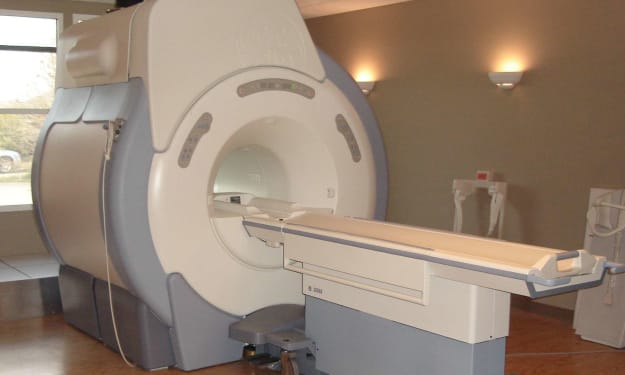Hormonal Imbalance and Psychiatric Disorder
Don't blame your head, it's your hormone.

The human mind is one very interesting labyrinth. Each mind is a different lock and each lock has its own key. The brain is similar to a computer. It follows a particular set of commands to execute functions. But sometimes a computer falters in its functions because of a wrong set of commands, bringing about a disruption in the entire software. Now compare these programming problems with the human brain and what we get is a set of functional problems what are known as mental disorders.
Psychiatric disorders are the mental diseases which affect the emotional, cognitive, perceptive, and behavioral aspects of any person. WHO (World Health Organization) says that about one in every four people is affected by psychiatric problems, but sadly only one-third of this population ever comes to seek help and get themselves cured. This may be because of the associated social stigma and not enough awareness among the people when it comes to psychiatric illnesses.
Psychiatric disorders may cause:
- Dysfunction
- Disability
- Loss of autonomy or self control
- An increased risk of death in a person
Even though many systems exist to classify psychiatric disorders, yet the line between different mental problems is a very thin one. Sometimes it is complicated to understand whether an external problem is causing the disease or the disease itself brings out the clinical manifestations.
To put it simply, psychiatric disorders can be classified as:
- Eating disorders
- Mood disorders
- Psychotic disorders
- Personality disorders
- Obsessive Compulsive Disorders
- Personality Disorders
- Post-traumatic Stress Disorder
- Impulse Control and Addiction Disorder
For the sake of this article, we will limit our discussion to affect of hormones on our mental health.
What is hormonal imbalance?
Even though all our body parts are connected to the central nervous system with the help of nerves, the effects produced by them last for a few moments. For long term effects and changes to be implemented in the body, special chemical messengers known as hormones are there to help. These hormones are produced by organs called glands. Hormone production is determined by the need of certain actions in the body, like insulin controlling the high glucose levels in the body or adrenaline helping us save our own life when it comes to "fight or flight."
Hormones are very sensitive chemical entities. Even the slightest kind of trigger can set them working quickly. In earlier or ancient times when our ancestors lived, the triggers which created hormonal activity were mostly "physical" in nature such as while hunting or foraging for food and water or protecting themselves and members of their family from danger, like wild animals.
Today, our hasty lifestyles coupled with lack of sleep, rest, consumption of a lot of food (especially sugars and processed foods), unending stress, and very little or no physical activity have thrown our hormones into a tizzy. This frenzy of hormonal over activity, coupled with little or no physical work and poor resting can completely throw our bodies off balance. Research says that today's generation is facing the same amount of stress at such a young age while our predecessors actually faced these things in their old age!
While most hormonal imbalances are stress related, some of the causes can be attributed to genetic problems, pathological dysfunction of the gland, or as a result of some other primary disease in the body.
And when these stresses are not taken care of at the right time, here is what we can see:
- Feeling tired all day or hyperactivity
- Inability to concentrate on things
- Short attention spans
- A feeling of anxiety
- Feeling confused and foggy sometimes
- Mental sharpness affected
- Moodiness
- Depression
- Panic attacks
- Inability to sleep properly
- Anorexia (eating very less) or bulimia (eating a lot and purging it out)
How does hormonal imbalance cause psychiatric disorders?
Before we get to that, we need to understand a little about which hormones are involved:
- Testosterone — Contrary to popular belief, this hormone is found in both males and females. This one keeps our brains sharp and alert.
- Estrogen and Progesterone — They help in protecting the nerve cells and preventing their oxidation. They are very useful in maintaining good blood flow to the brain and provide an environment for optimum neurotransmission. The onset of puberty, pregnancy, lactation, and menopause are the key milestones in life when their effects and deficiencies can be particularly felt.
- Thyroid hormones — T3, T4 and TSH are vital to maintaining the metabolic activity of the body. In fact, they are the main hormones involved in proper growth and development of a fetus's brain. Imbalance of thyroid hormones can produce a variety of symptoms such as sluggishness, hyperactivity and poor mental abilities along with effects on other body systems.
- Adrenal hormones — Cortisol and adrenaline are two very important hormones produced by adrenal glands that help the body cope up with stress. These are the ones which are highly involved in managing day to day stresses and coping up with the signal overload produced by the autonomic nervous system.
Now let's get to the part on how hormonal imbalances can contribute to psychiatric illnesses:
Simply put, any excess or deficiency of hormones can affect the mental status of the individual. In the initial stages, hormones are adept at handling at any rise and fall in the body's homeostatic functions and restore them to normal. The real trouble starts when the functions begin to get out of hand.
To gain a better understanding, take a look:
- Pre-Menstrual Dysphoric Disorder — This is a severe form of pre-menstrual syndrome, which affects a minority of women. This problem is accompanied with several behavioral and physical symptoms like irritability, anxiety, depression, fatigue and trouble in concentration. This disorder can be attributed to both genetic and environmental causes.
- Hyperthyroidism — Also known as overactivity of the thyroid gland, this disease can result in increased metabolic rate, anxiousness, irritability and jittery behaviour. Insomnia and nervous excitation are a common presentation
- Hypothyroidism — This is the exact opposite of hyperthyroidism. This problem is associated with low levels of thyroid hormones which can depress the metabolism and cause mental sluggishness.
- Adrenal fatigue — Repeated overactivity of adrenal glands can result in constantly elevated levels of cortisol. Cortisol is responsible for limiting the extent of inflammation in the body. It is a beneficial thing in the short term, but a long term activity of these hormones can weaken the body's immunity. Conversely, under activity of cortisol makes the body vulnerable to chronic inflammation and cause fibromyalgia, mood disorders and autoimmune diseases.
- Post-Partum Stress Disorder — It is a kind of clinical depression which mothers experience after the birth of their baby. Pregnancy and delivery is a trying period and fluctuations in estrogen and progesterone levels can cause severe depression, a feeling of restlessness and "all hope is lost" kind of sensation.
This is a small list and there are many more psychiatric problems which can be attributed to hormonal imbalances. But the good news is that most of these are treatable and one can expect a full recovery from these problems. Many symptoms of these disorders are subjective in nature and may be difficult to diagnose. But when you find yourself or a loved one going through this, talk to a doctor. Forget the stigma, forget what people will say. It is important to have a peaceful and calm state of mind not only for others, but yourself as well. A healthy lifestyle, good attitude to life along with proper nutrition and exercise can help you beat out the worst of these problems.
About the Creator
Siya Nathan
Siya is interested in all aspects of life. Once a health care professional currently a writer!! Siya loves cooking, dancing, reading, writing, traveling. She pursues her passion for writing at MediFee.






Comments
There are no comments for this story
Be the first to respond and start the conversation.